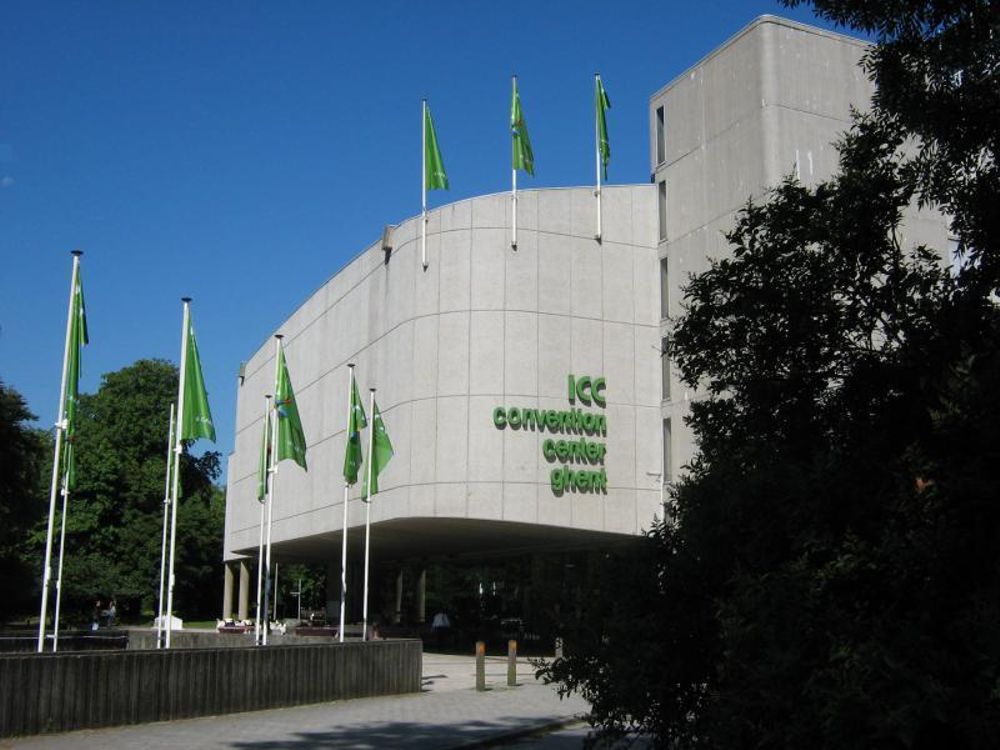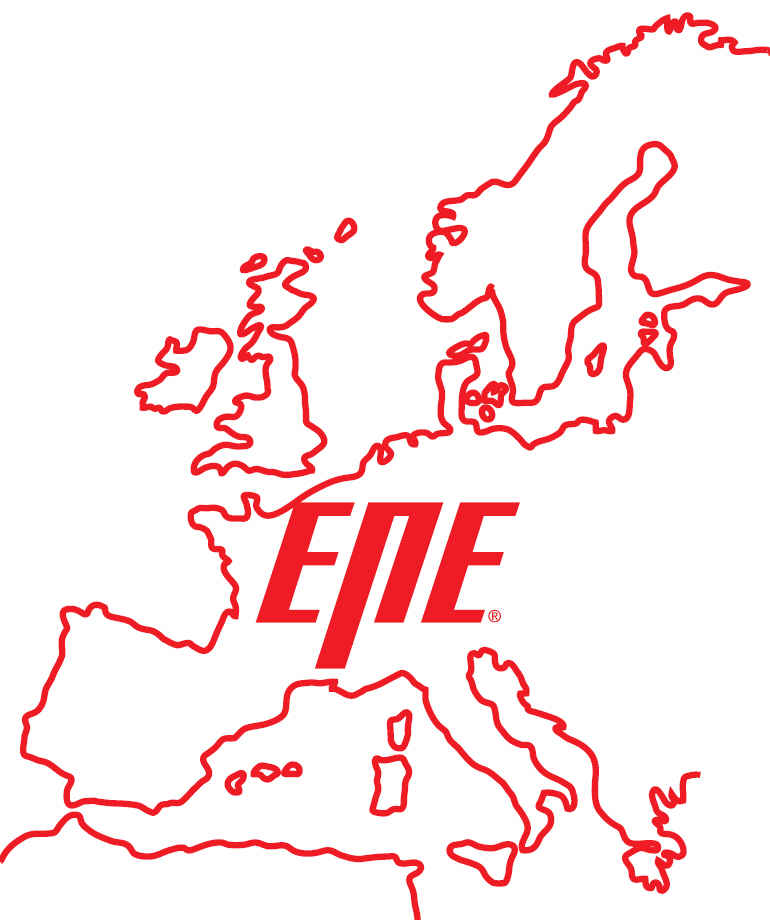Several tutorials will be organised on Monday 6 September 2021
Due to the Covid-19 pandemic, no live event is organized in Ghent.
The Tutorials will take place online.
TUTORIAL N° 2
Morning
(09:30 – 13:00)
Reliability of Modern Power Electronics Based Power System (PEPS)
- Frede BLAABJERG (Department of Energy Technology, Aalborg University, Denmark)
- Dao ZHOU (Department of Energy Technology, Aalborg University, Denmark)
- Saeed PEYGHAMI (Department of Energy Technology, Aalborg University, Denmark)
- Jose RUEDA TORRES (Electrical Sustainable Energy Department, Delft University of Technology, the Netherlands)
Power electronics are the underpinning part of future power systems. Reliability of power electronic converters as the long-term performance indicator is of paramount importance for design and manufacturing of converters in different applications as well as for design and planning of future power electronic based power systems. This tutorial will address the basics of reliability modeling, evaluation and enhancement from component-level up to system-level in power electronic systems for different applications in future power systems. This will help both power electronics and power system engineers to design, strengthen, and maintenance of power electronic converters as well as optimal design, planning and maintenance of modern power systems.
TUTORIAL N° 3
Full Day
(09:30 – 13:00 + 14:00 – 17:30)
Safety considerations in Low Voltage DC Grids
- Johan DRIESEN (KU Leuven/EnergyVille)
- Simon RAVYTS (KU Leuven/EnergyVille)
- Giel VAN DEN BROECK (DCINERGY)
Low-voltage DC technology (LVDC) is emerging in several forms, thanks to evolutions in power electronics, e.g. in renewable energy systems based on photovoltaics and batteries, high-end drive systems, electrical vehicle charging systems. The advantages are higher efficiencies, ease and simplicity of installation yielding lower costs and improved reliability. On the other hand, in any DC system, protection requires specific attention, as common principles from AC technology cannot be applied. This tutorial aims to demonstrate the advantages of LVDC and addresses how protection can be handled in practice.
TUTORIAL N° 4
Full Day
(09:30 – 13:00 + 14:00 – 17:30)
Control of Modular Multilevel Converters for Variable-Voltage Variable-Frequency Applications
- Axel MERTENS (Institute for Drive Systems and Power Electronics, Leibniz University Hannover)
- Jakub KUCKA (Power Electronics Laboratory, EPFL)
- Dennis KARWATZKI (Siemens AG, Large Drive Applications)
Beside their wide application in high-voltage direct-current systems, modular multilevel converters are increasingly finding applications in various other fields. This tutorial focuses on modular multilevel converters (MMCs) and modular multilevel matrix converters (MMMCs) for applications that require a wide range of variable converter output voltages and frequencies (VVVF) . Typical applications with such requirements are medium-voltage drive systems. While the superior voltage quality, the simple voltage scalability, and optional redundancy of both MMCs and MMMCs are attractive, the high complexity of the system is a challenge. It requires special control approaches to enable a stable operation. In this tutorial, the operation principle of these topologies will be explained and control strategies will be presented in detail. An emphasis will be placed on a generalized control approach, proposed by our research group, which can be applied to both MMCs and MMMCs, as well as to other similar topologies. Furthermore, specific operation modes will be explained that also cover singular points of the conventional control and thus, allow for a wide range of output frequencies. Besides regular multilevel operation, which requires large capacitance inside each module, the quasi-two-level PWM operation will be presented. It is capable of reducing the module capacitance by more than one order of magnitude, and the principle can also be transferred to other topologies.
After successfully attending this tutorial, the participants will understand
• the difference between MMCs with or without branch current control,
• the need to stabilize and balance the energies in the branches and modules,
• a generic modelling and control approach for a large class of modular multilevel converters,
• how specific input or output frequencies affect the stability of the converters,
• how dedicated operating modes can deal with these obstacles and what their limitations are,
• and the benefits and limitations of novel, quasi-two-level PWM modes of operation for widely reduced module energy storage.
TUTORIAL N° 5
Morning
(09:30 – 13:00)
Integrated Drives: power electronics and electrical machine challenges
- Betty LEMAIRE-SEMAIL (Université de Lille)
- Nadir IDIR (Université de Lille)
- Eric SEMAIL (Université de Lille)
- Ke LI (Coventry University)
- Souad HARMAND (Université Polytechnique des Hauts de France)
- Florent NIERLICH (CTO Safran Electrical & Power)
With a power converter inside the machine, the Electrical Integrated Drives are already attractive solutions for mass‐market applications where simple packaging is of high importance. The disappearance of the AC cables between the Voltage Source Inverter (VSI) and the machine simplifies the implementation without external problems of Electromagnetic Compatibility. Moreover, integrated fault tolerant drives are able to address industrial domains where high compacity, high power/mass ratio and high reliability are expected.
TUTORIAL N° 7
Full Day
(09:30 – 13:00 + 14:00 – 17:30)
- Claudio ADRAGNA (STMicroelectronics)
- Francesco GENNARO (STMicroelectronics)
The LLC resonant converter is perhaps today’s most popular resonant conversion topology, used to supply power to several mass-produced electronic devices in several markets.
The field experience is consolidated, the technical literature is rich, and many IC manufacturers have dedicated control ICs in their portfolio. Despite that, designing and fine-tuning LLC converters is still considered a tough task. Thus, a guided tour through their intricacies is deemed beneficial both to the neophyte and the experienced engineer: the first one will find that the LLC converter is a tamable wild beast, the second one will brush up a bit and maybe discover something that mom never taught them.
TUTORIAL N° 8
Afternoon (14:00 – 17:30)
Grid forming converters connected to the transmission system
- Xavier GUILLAUD (L2EP Centrale Lille)
- Fredéric COLAS (L2EP ENSAM)
Today, a major share of the electronic converters is controlled under the presumption that they are connected to a strong AC voltage in such a way that the converter can exchange an active and reactive power thanks to a current control. This control strategy of the converter is known as the grid-following control. The grid forming control is proposing a new way to connect the power electronic converters to overcome the limitation of the grid following connection solution. The proposed tutorial will cover a wide overview about grid forming control and explain its advantage and drawbacks. Some practical applications on wind turbines and high voltage DC/AC converter (MMC) will be proposed. This tutorial will give the key points to understand the evolution of the power electronic converters on the grid. All the concepts will be illustrated by some simulations which are publicly available on github
TUTORIAL N° 9
Full Day
(09:30 – 13:00 + 14:00 – 17:30)
Model Predictive Control of Power Electronic Systems: Methods, Results, and Challenges
- Tobias GEYER (ABB System Drives, Switzerland)
- Petros KARAMANAKOS (Faculty of Information Technology and Communication Sciences, Tampere University, Finland)
Model predictive control (MPC) is a control approach that has recently been gaining more popularity in the field of power electronics due to its numerous advantages such as explicit inclusion of design criteria and restrictions, design versatility and inherent robustness. In academia, direct MPC with reference tracking, also known as finite control set MPC (FCSMPC), is the favored and most widely published MPC method. Reasons for this include the advent of powerful micro-processors as well as its allegedly straightforward and simple design procedure. Because of the latter, researchers advocate the use of FCS-MPC in industry as a superior alternative to established control methods. However, industry is reluctant to adopt new control methods that do not provide significant economic benefits. To achieve these benefits with control, it is mandatory to improve some key aspects of the system performance; this, in turn, is typically achieved with more complicated control methods.
Motivated by the previous observations, the objective of the tutorial is to elucidate the design simplifications that adversely affect the behavior of FCS-MPC, and suggest MPC methods that improve the power electronic system performance. In particular, this tutorial focuses on (a) design guidelines that improve the performance of FCS-MPC, and (b) alternatives that either use a modulator (indirect MPC) or have an embedded modulator (model predictive pulse pattern control and gradient-based MPC) and achieve superior performance compared with conventional control techniques. Moreover, particular emphasis will be put on the associated challenges of the real-time implementation of the discussed MPC algorithms on embedded systems. To this end, implementation-related issues will be discussed and methods to tackle them will be presented. Finally, the performance of the MPC methods in question is assessed and their main strong points and weaknesses are identified.
Overall, the tutorial aims at providing a balanced mix of theory and application-related material. Special care is taken to ensure that the presented material is intuitively accessible to the power electronics practitioner. This is achieved by augmenting the mathematical formulations by illustrations and simple examples.
By the end of the tutorial, the attendees:
- will have a new insight on the design of MPC-based controllers with different formulations,
- will be able to understand what design options exist that maximize the system performance,
- will be able to recognize the design and implementation challenges of the discussed methods, and
- will be able to develop MPC-based controllers that outperform conventional control techniques and push the system performance to its physical limits.
TUTORIAL N° 10
Afternoon (14:00 – 17:30)
Reliability and Lifetime of PV-Battery Systems
- Huai WANG (Aalborg University)
- Daniel-Ioan STROE (Aalborg University)
- Ariya SANGWONGWANICH (Aalborg University)
For PV-Battery systems, the reliability of the key components such as power electronics and batteries are crucial aspects to ensure the stability and profitability of the system. This tutorial aims to address the reliability challenge and solutions for power electronics and batteries for PV applications. It will start with a brief overview of PV-Battery technology with a focus on power electronics topology and battery integration. Then, the importance of reliability aspect performance for PV inverters is discussed, followed by the various sources of field experiences and the identified types of failures including single event-related catastrophic failure and long-term degradation related wear out failure of power electronic components. Various reliability engineering tools will be briefly presented as well, with a more in-depth discussion on the reliability and lifetime prediction methods and its limitations.
The second part of this tutorial will provide an overview of the Lithium-ion (Li-ion) battery storage technology, its operating principles, characteristics, advantages, and limitations. Furthermore, an important part of the tutorial will be dedicated to the performance-degradation behavior of such energy storage devices, focusing on the dependence of the battery performance parameters (e.g., capacity, power, resistance) on various parameters such as, temperature, load current, cycle depth, number of cycles. Various approaches for Li-ion battery lifetime prediction will be introduced. Finally, a systematic lifetime modeling approach for PV-Battery system will be provided step-by-step. A case study of a residential PV-Battery system will be presented, where the lifetime modeling of power electronics and batteries are used as a design tool (e.g., component sizing) to ensure the economic profitability of the system based on the mission profile.
TUTORIAL N° 12
Morning (09:30 – 13:00)
Testing and Modelling of Power Electronic Components for Reliability
- Francesco IANNUZZO (Corpe – Aalborg University)
- Amir Sajjad BAHMAN (Corpe – Aalborg University)
In this tutorial, after a review of the basic theory of reliability engineering, several approaches for reliability testing of power electronics components will be presented in the first part. Typical pros and cons of power cycling test setups of Silicon and Silicon Carbide devices will be discussed.
In the second part of the tutorial, loss calculation in a power electronic circuit as well as the general heat theory will be introduced first. Afterwards, the extraction of the equivalent thermal network of real power stack will be presented.
The tutorial is concluded with an overview on the novel and promising methods for mission-profile-based prediction of Remaining Useful Life (RUL).
TUTORIAL N° 14
Morning (09:30 – 13:00)
- Marco Liserre (Christian-Albrechts-Universität zu Kiel)
- Rongwu Zhu (Harbin Institute of Technology)
- Marius Langwasser (Christian-Albrechts-Universität zu Kiel)
The modular multi-level converter is already established in HVDC applications and it is a promising technology also for MVDC grids. In this context, this tutorial is intended to introduce the recent advancements of the modular multi-level converter dealing with control and fault management of MVDC grids. Due to the great number of devices used in modular multi-level converter, component fault diagnosis, fault tolerance capability and lifetime management become some of the main predominant challenges to ensure the reliable and safe operation. Apart from the converter internal faults, in the dc side fed by the modular multi-level converter, the grid faults have high dynamics and inrush currents, which challenge both the grid protection system and converters reliability. This tutorial will start from topology of modular multi-level converter with and without the medium/high frequency galvanic isolation. Then, power routing and active thermal control-based lifetime management for the modular multi-level converter are introduced. Afterwards, the parameter monitoring, reliability, fault localization, and post-fault operation strategies of the modular multi-level converter will be presented. In the last part, the tutorial will present the solutions for medium voltage dc fault protection.
























©VisitGent
©VisitGent
©VisitGent
©VisitGent
©VisitGent
©VisitGent
©VisitGent
©VisitGent
©VisitGent
©VisitGent
©VisitGent
©VisitGent
©VisitGent
©VisitGent




